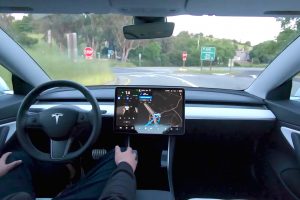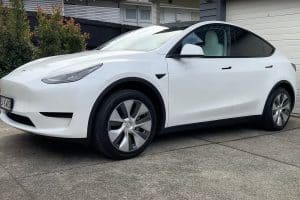- 💡 Volkswagen remains committed to its ambitious goal of launching 25 electric vehicles (EVs) in North America by 2030.
- 📈 Despite acknowledging potential changes based on market demand, VW sees continued growth in the EV segment.
- 🔌 Infrastructure remains a key challenge hindering widespread EV adoption, with charging infrastructure being a particular concern.
- 🚗 Volkswagen plans to introduce several new EV models in 2024, including the ID.Buzz EV bus and the ID.7 electric sedan.
- 🏞️ The focus for the rest of the decade will be on midsize and large SUVs as part of Volkswagen’s electrification push in the U.S.
- 🔄 Refreshing existing models like the ID.4 with longer range ratings and improved infotainment is part of Volkswagen’s strategy to attract EV buyers.
- 💰 Eligibility for tax credits will be essential for Volkswagen to compete with rivals like the Tesla Model Y in the EV market.
In the rapidly evolving landscape of electric vehicles (EVs), automotive giants like Volkswagen are making significant strides towards a greener future. With ambitious goals and innovative strategies, Volkswagen aims to revolutionize the automotive industry by embracing electrification. Let’s delve into Volkswagen’s electric vehicle strategy, exploring its aspirations, challenges, and the road ahead.
Embracing the Electric Revolution
Volkswagen’s commitment to sustainability is evident in its ambitious goal of launching 25 electric vehicles in North America by 2030. This bold vision underscores Volkswagen’s dedication to reducing carbon emissions and transitioning towards cleaner transportation alternatives. By focusing on EVs, Volkswagen seeks to align with global efforts to combat climate change and build a more sustainable future for generations to come.
Navigating Market Dynamics
While Volkswagen remains steadfast in its EV ambitions, it acknowledges the dynamic nature of the market. Fluctuations in demand and evolving consumer preferences pose challenges that require agile responses. Despite these uncertainties, Volkswagen remains optimistic about the continued growth of the EV segment. By closely monitoring market trends and consumer behavior, Volkswagen aims to adapt its strategies to meet evolving needs and preferences.
Overcoming Infrastructure Hurdles
One of the most significant challenges hindering widespread EV adoption is the inadequacy of charging infrastructure. Volkswagen recognizes the critical role of infrastructure in driving EV adoption and acknowledges the need for comprehensive charging networks. Addressing this challenge requires collaborative efforts involving automakers, governments, and other stakeholders to accelerate the deployment of charging stations. By investing in infrastructure development, Volkswagen aims to create a seamless charging experience for EV drivers, thereby encouraging broader adoption.
Expanding the EV Portfolio
Volkswagen’s commitment to electrification is evident in its plans to introduce several new EV models in 2024. Among these are the highly anticipated ID.Buzz EV bus and the ID.7 electric sedan. These additions to Volkswagen’s EV lineup demonstrate the brand’s commitment to innovation and diversity in its product offerings. By expanding its portfolio, Volkswagen aims to cater to a broader range of consumer preferences and solidify its position in the EV market.
Focus on SUVs: Capturing Market Demand
In line with consumer preferences, Volkswagen’s electrification strategy places a significant emphasis on midsize and large SUVs. These vehicles remain popular choices among consumers, reflecting the growing demand for spacious and versatile electric vehicles. By prioritizing SUVs in its electrification push, Volkswagen seeks to capitalize on market trends and deliver EVs that meet the needs of today’s drivers. This strategic focus underscores Volkswagen’s commitment to staying attuned to market dynamics and consumer preferences.
Enhancing Existing Models
In addition to introducing new models, Volkswagen is committed to enhancing its existing lineup of EVs. Refreshing models like the ID.4 with longer range ratings and improved infotainment systems is part of Volkswagen’s strategy to attract and retain EV buyers. By continuously innovating and improving its offerings, Volkswagen aims to stay ahead of the curve and deliver best-in-class electric vehicles that exceed consumer expectations.
Leveraging Tax Credits for Competitiveness
In the highly competitive EV market, eligibility for tax credits can significantly impact a brand’s competitiveness. Volkswagen recognizes the importance of tax incentives in driving EV sales and plans to leverage tax credits to compete with rivals like the Tesla Model Y. By offering attractive incentives to consumers, Volkswagen aims to make its EVs more accessible and appealing, thereby gaining a competitive edge in the market.
Conclusion: A Promising Future for Volkswagen EVs
As Volkswagen charts its course towards electrification, the road ahead is filled with both opportunities and challenges. By staying true to its commitment to sustainability, innovation, and consumer satisfaction, Volkswagen is poised to lead the charge in the electric vehicle revolution. With a diverse portfolio of EVs, strategic investments in infrastructure, and a customer-centric approach, Volkswagen is laying the foundation for a greener, more sustainable automotive future.





